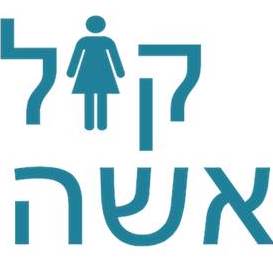click to dowload our latest edition
CLICK HERE TO SUBSCRIBE TO OUR NEWSLETTER


Published
8 years agoon
By
adminSUZANNE BELLING
The case is to be heard in the Equality Court, unless the two sides can reach agreement to settle the dispute internally. The Board, according to Orthodox halachic interpretation in this country, did not permit a woman to sing solo at the Yom Hashoah ceremony last month.
 The Cape Council of the SA Jewish Board of Deputies has arranged a colloquium in Cape Town for June 20 to try to find a unified voice about the issue.
The Cape Council of the SA Jewish Board of Deputies has arranged a colloquium in Cape Town for June 20 to try to find a unified voice about the issue.
But, by the Cape Board only inviting it’s own affiliate organisations – they will not be in a position to poll the contrary community view being taken by the plaintiffs – nor the legal views of their high-powered attorneys and advocates.
The SA Jewish Report approached members of the public for their views on the matter.
Pam Blumenthal, a Progressive rebbetzen, does not believe in “Jews washing their dirty linen in public – I genuinely believe this is a matter for the Beth Din.
“There should have been a compromise in order to prevent a divide in the Jewish community.”
Given these views, Blumenthal used to sing in the Temple choir and this controversy did not happen within the confines of the Progressive congregation. “I don’t believe any man found my voice provocative…
“I believe people put their own interpretations on halacha to suit their own book.”
Totally against any court action, she feels that controversy within the Jewish community should be over important basic principles and “not over trivia”.
Elan Lieb says the entire issue “angered me. The whole thing is pathetic.
“People cannot separate the constitutional rights of citizens of this country from an age-old law that came into existence long before the Constitution.”
He says he cannot understand Orthodox Jews being reduced to this type of shallowness and pettiness.
“If you are Reform you are entitled to your own opinion, because there everything is negotiable.”
He believes the matter does not concern human rights at all.
“It is sad that we live in a world where anything goes, as opposed to the tried and tested.”
Women are honoured in Orthodoxy, he says.
Adrienne Kay said that out of “absolute respect you shouldn’t have a woman singing in public”.
Going to a function where the people present observed halacha should be acceptable to their views as well.
“Halacha prohibits women singing solo at events.” This observance had to be respected.
“You wouldn’t have a woman singing at a funeral,” she said.
Yom Hashoah was commemorated in a holy place and because of that, “I don’t think it’s right for a woman to be singing in a cemetery”.
The same applied to other events, such as the function held on Yom Yerushalayim.
She did not feel it was right to institute legal action. It was saying Jews did not respect other Jews.
“I think it’s a chilul Hashem [desecration of G-d’s name] that one Jew can take another to court over something like that, something unimportant.”
David Carless regards the kol isha issue as unnecessary, saying it does not affect him.
He said the ruling on the matter was made many years ago by the Chief Rabbi and that ruling still stood.
“It depends on the function,” he said. If the event involved a cross-section of the community and a woman singing was going to be the reason for some not to attend, the ruling should stand.
The Holocaust memorial event was one such function.
“I think it’s very sad that we should be taken to court and create disunity in a relatively small Jewish population and publicise something like this. It is almost a chilul Hashem.
“I don’t think it is something worth going to court about. It’s a pity it can’t be resolved outside court.”
Writer Alexandra Levin, a member of the Beit Emanuel Progressive Congregation, said she thought the exclusion of women singing at communal events was “appalling”.
“G-d gave women a voice and the voice was meant to be heard. I am for women being heard and seen.”
She felt the court case instituted by two Cape Town Orthodox Jews, subsequently joined by the SA Centre for Religious Equality and Diversity (SACRED), was “absolutely a good idea.
“I think that if there was a better way of dealing with it, it would have been done.”
She said the spiritual leader of her congregation, Rabbi Sa’ar Shaked, had discussed it and he was in favour of women singing at communal events.
Barbara Rigden feels the issue disrupts communal unity, “which is our strength”, and it divides the Jewish community.
“Such disputes should be resolved by the rabbinate and the Jewish community itself – not by outside secular courts.”
She thinks that women singing for the purpose of expressing what is in their hearts “has nothing to do with stirring feelings in men, but relays one’s own emotions and feeling.
“I think it has nothing to do with halachic rulings,” she said. “The court action is making a laughing stock of the Jewish people. It is really very wrong

David Lipschitz
Jun 13, 2016 at 10:21 am
‘On Saturday night at the Tikkun Lael Shavuot at the Progressive Shul in Greenpoint, there was a discussion about feminism, and specifically the problem that the Jewish Community is having about women being able to sing at certain public events and in the Orthodox Choirs. And this problem has now been taking to the Equal Rights Commission of South Africa, which is probably a good thing as this problem exists in many places and religions.
I haven’t really applied my mind on this topic before.
I realised that women having to be covered up and not singing, because this is deemed \”offensive\”, is actually a male sexism thing, ie degrading to men!
I have always thought that feminism is ok.
But not in this sense!
This degrades men and makes it look like men are provoked when men \”look\”. This makes men appear to be predators. And this becomes a \”Self-fulfilling prophesy\” for some men.
Women should be allowed to sing in public. And they should be allowed to wear whatever they like. As should me.
I believe that if men and women jointly decide that rugby, for example, is for me, and singing, for example, is for women, then that is fine.
I am against men deciding for women and women deciding for men.’
boruch ellis
Jul 27, 2016 at 5:08 pm
‘halacha is not negotiable’